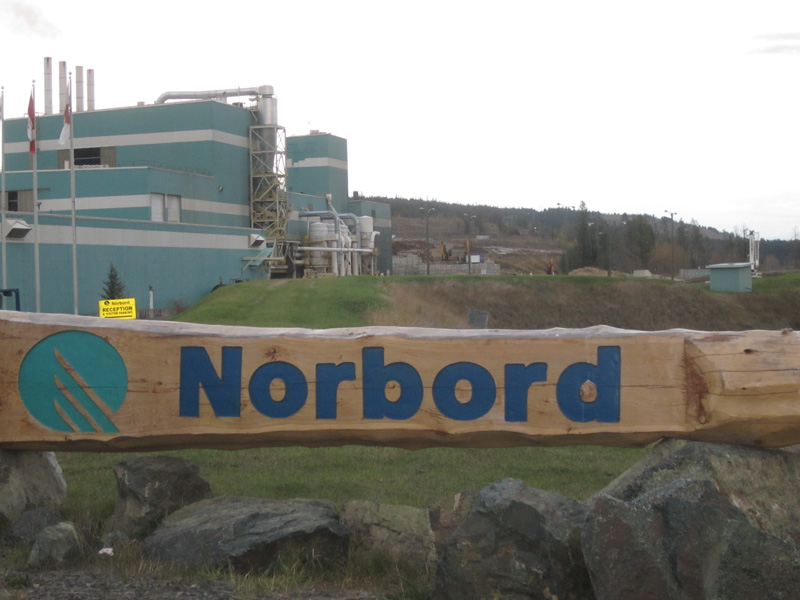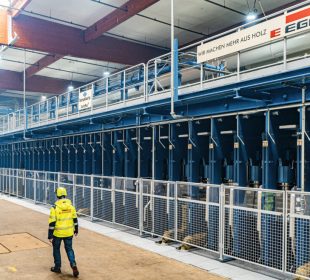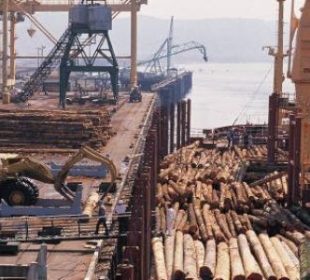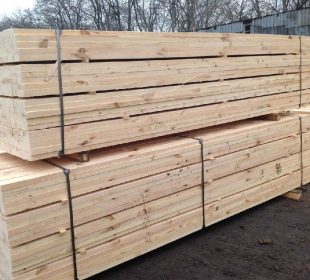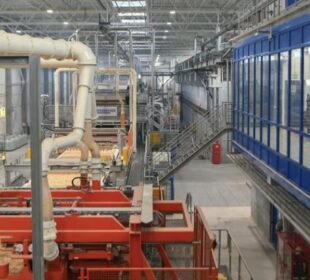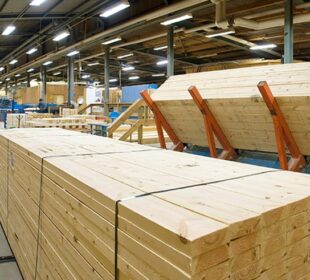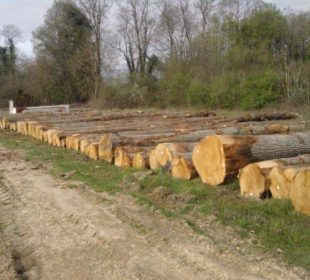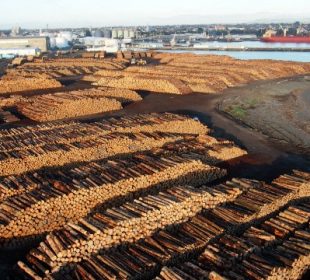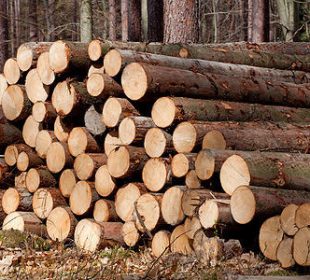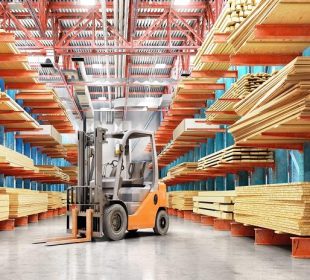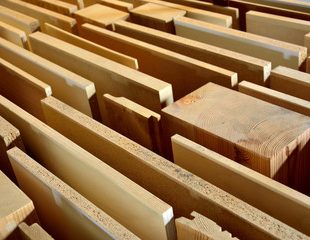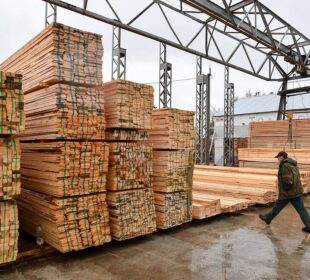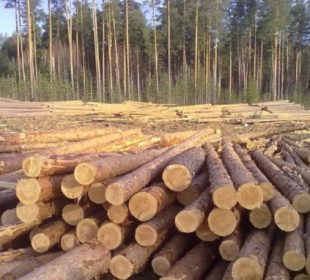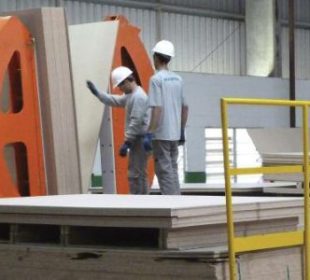Norbord Inc. reported Adjusted EBITDA of $33 million in the third quarter of 2019 compared to $36 million in the second quarter of 2019 and $211 million in the third quarter of 2018. The quarter-over-quarter decrease was driven by lower panel prices and shipments in Europe, which more than offset improved manufacturing costs in North America, while the year-over-year decrease was primarily due to lower North American oriented strand board (OSB) prices.
North American operations generated Adjusted EBITDA of $24 million compared to $18 million in the prior quarter and $190 million in the same quarter last year. European operations delivered Adjusted EBITDA of $11 million, down from $21 million in the prior quarter and $23 million in the year-ago quarter.
“After the negative effects of affordability concerns and record wet weather on US housing starts in late 2018 and early 2019, we have started to see improvement this past quarter,” said Peter Wijnbergen, Norbord’s President and CEO. “Mortgage rates are well below 4% and homebuilders continue to report improved levels of buyer interest and net order growth. While we are entering the slower winter construction season, the expectation is that these positive indicators will carry over into 2020.”
“However, these improving housing fundamentals have yet to translate into a significant recovery in OSB markets. We took extensive downtime across our North American mills for the fourth straight quarter to ensure Norbord continues to match production to demand. In addition to the indefinite curtailment of our 100 Mile House, British Columbia mill in August, we made the difficult decision to indefinitely curtail Line 1 of our Cordele, Georgia mill effective mid-November. Poor market conditions and lower-than-anticipated OSB demand, particularly in the South East region, do not currently support the economic operation of the line,” Wijnbergen said.
“In Europe, results in our panel business were challenged by continued slowing of industrial demand in Germany, where the effects of the global trade war are being felt on that export-oriented economy. As a result, panel prices have rolled over from the well above-average levels experienced the past couple of years. However, we expect this softening of prices to help stimulate the pace of OSB substitution and continue to drive strong consumption growth in residential construction markets,” Wijnbergen said.
Performance
North American OSB shipments increased 4% quarter-over-quarter due to higher demand from the repair-and-remodelling sector but declined 2% year-over-year reflecting the slowdown in US homebuilding demand in recent quarters. Norbord’s specialty products (including industrial and export) represented approximately 25% of the Company’s North American OSB sales volume in the last four quarters.
Excluding the curtailed Chambord, Quebec mill, Norbord’s North American OSB mills produced at 92% of available capacity, compared to 88% in the prior quarter and 99% in the same quarter last year. Fluctuations in capacity utilization (which is based on fiscal days in each period) were due to improved productivity in the current quarter as well as the timing of annual maintenance shuts and other downtime. In addition, a portion of the year-over-year decrease was driven by the December 31, 2018 restatement of annual production capacities at a number of mills.
Norbord’s North American OSB cash production costs per unit (before mill profit share and freight costs) decreased 4% versus the prior quarter due to improved productivity and raw material usages, as well as lower costs related to annual maintenance shuts and other downtime. Unit costs were down 3% versus the same quarter last year primarily due to lower resin prices and improved productivity, partially offset by increased downtime and higher raw material usage.
On June 11, 2019, the company announced the indefinite curtailment of its 100 Mile House, British Columbia mill starting in August 2019 as a wood supply shortage and high wood prices did not support the economic operation of the mill. The region where the mill operates has been under mounting pressure for the past decade as a result of the mountain pine beetle epidemic. This challenge has been further exacerbated by the significant wildfires that the province of BC experienced in the summers of 2017 and 2018. A net charge of $2 million was recognized in the second quarter to provide for severance and related costs. Norbord has successfully transferred production to its other operating North American OSB mills, including High Level and Grande Prairie, Alberta.
In August 2019, the company announced that Line 1 of the two-line Cordele, Georgia OSB mill would operate on a reduced 10/4 schedule effective September 5 due to continued poor market conditions. Subsequent to quarter-end, on October 21, 2019, the Company announced the indefinite curtailment of Line 1 effective mid-November due to continued poor market conditions and lower-than-anticipated OSB demand to-date, particularly in the South East region. As a result, in the third quarter the Company recorded a non-cash pre-tax impairment charge of $10 million against the carrying value of certain of the mill’s production equipment. No additional impairment is required for the mill’s remaining assets as their recoverable amount is greater than their carrying values.
The 100 Mile House mill has a stated annual production capacity of 440 MMsf (3/8-inch basis) and Line 1 at the Cordele mill also has annual production capacity of 440 MMsf (3/8-inch basis), combined representing 12% of the Company’s North American stated annual capacity.
In Europe, Norbord’s shipments were down 7% versus the prior quarter and 6% year-over-year due to the typical seasonal demand slowdown during the European vacation season and continued slowing of German industrial production. The European mills produced at 84% of stated capacity in the quarter, down from 91% in the prior quarter and 87% in the same quarter last year due to annual maintenance shuts taken in the current quarter, including to address typical production issues that affected the ramp-up of the reinvested Inverness, Scotland mill, which started up in the fourth quarter of 2017.

